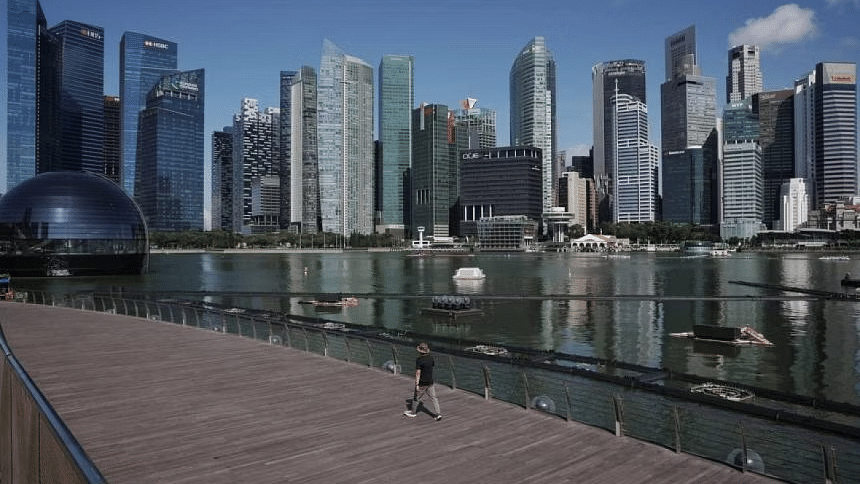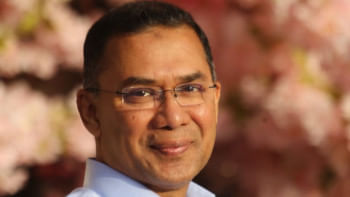Money laundering: Singapore seizes $6 billion in five years

Anti-money laundering efforts in Singapore saw the authorities seize $6 billion linked to criminal and money laundering activities between January 2019 and June 2024.
About $416 million has been returned to victims, while $1 billion has been forfeited to the state. A large bulk of the remaining sum is linked to ongoing investigations or court proceedings.
The details were published in Singapore's first-ever National Asset Recovery Strategy, which Prime Minister Lawrence Wong announced on June 26 at the opening of the Financial Action Task Force (FATF) Plenary Meeting.
PM Wong said Singapore has made asset recovery a priority in its national anti-money laundering regime.
The approach sets out how Singapore will deprive criminals of their illicit funds and assets, remove the financial incentives for criminals to launder their illicit proceeds in Singapore, and return these assets to victims.
Through the collective efforts of the money laundering watchdog FATF and its partners, PM Wong said Singapore has made progress against money laundering and terrorism financing at the global level.
"But the success of the global effort against financial crime is also dependent on effective implementation within national borders.
"Singapore is fully committed to doing our part. As an international financial and business hub, we recognise that we face greater money laundering and terrorism financing risks.
"But we are determined to do what is needed to respond to these risks and safeguard Singapore's reputation as a trusted financial centre," he said at the event held at the Marina Bay Sands Expo and Convention Centre.
PM Wong said virtual assets and digital payment channels have made it easier for criminals to move and hide their illicit proceeds, and to operate across borders while exploiting the information silos that exist between national law enforcement agencies.
"No country can address these threats by itself. That is why the FATF's work in leading a coordinated global effort has become more important," he added.
Over two days, the FATF, the global money laundering and terrorism financing watchdog, will lead sessions attended by delegates from the World Bank, International Monetary Fund, United Nations and other international organisations.
PM Wong highlighted the FATF's progress in recent years in tackling three challenges – the interception of illicit funds; improving transparency of legal entities, such as companies and trusts; and in identifying ways to break down information silos.
Citing Interpol figures, he said around US$2 trillion to US$3 trillion (S$2.7 trillion to S$4.07 trillion) worth of illicit proceeds are channelled through the global financial system annually.
"A very small fraction of these criminal assets is intercepted and recovered, which means that criminals can largely get away with, and profit handsomely from, their crimes," he added.
PM Wong noted that the latest figures from Interpol showed that the recovery rate from illicit funds is a low 3 per cent, up from 1 per cent a decade ago.
"We need to do better. But at least we are moving in the right direction, and we can aim for even higher recovery rates in the years to come," he added.
PM Wong said Singapore has continually reviewed and strengthened its legal frameworks to align them with the FATF's standards.
"Over the past few years, we have tightened our regulations to increase transparency on beneficial ownership, introduced new regulations, and strengthened existing laws to address risks related to virtual assets, as well as precious stones and metals dealers.
"We have also strengthened our laws to give our law enforcement agencies more tools and powers to pursue, prosecute and sanction offenders for money laundering offences," he added.
Legal frameworks, such as the Criminal Procedure Code (CPC) and the Corruption, Drug Trafficking and Other Serious Crimes (Confiscation of Benefits) Act (CDSA), give law enforcement agencies regulatory power, the Finance and Home Affairs ministries and the Monetary Authority of Singapore said in a joint statement on June 26.
The CPC empowers the authorities to order any individual or entity to produce information, documents or items for criminal investigations.
It also allows law enforcement agencies to seize or issue prohibition of disposal orders to suspected criminal assets.
The CDSA sets a legal obligation, making it an offence if individuals or entities fail to file suspicious transaction reports.
Under the CDSA, the judiciary can issue restrain and charging orders for assets that may be subject to confiscation after court proceedings.
The court can also issue confiscation orders for assets not directly linked to the offences.
The agencies added that to further enforce the rule of law, Singapore will publish a national anti-money laundering strategy and introduce an anti-money laundering Bill by the end of 2024.
PM Wong said that even the most stringent anti-money laundering regimes can be circumvented by determined criminals, who will continuously search for gaps to exploit.
"It is also important that our measures are not overzealous and do not unnecessarily stifle legitimate activities and investments," he added.
Singapore adopts a risk-based approach, PM Wong said, adding that the country focuses on understanding latest trends and developments in the financial world that can be exploited by criminals, and developing tools and legal frameworks that will allow suspicious individuals and activities to be detected early.
This approach led to one of the largest anti-money laundering operations in the world, he added.
"After we picked up signs of illegal activities, we undertook extensive investigations and we seized more than $3 billion in assets from 27 suspects.
"Ten suspects have since been convicted within a year of their arrest. Around $940 million of their assets have been forfeited to the state, which is more than 90 per cent of what we seized from them," he said, adding that investigations are ongoing against the 17 other suspects who are currently overseas.
Copyright: The Straits Times/Asia News Network (ANN)

 For all latest news, follow The Daily Star's Google News channel.
For all latest news, follow The Daily Star's Google News channel. 



Comments